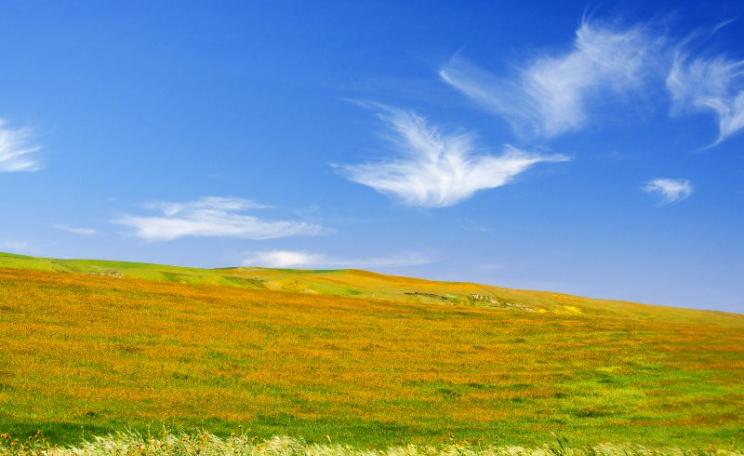Kathy Jetnil-Kijner, a Marshallese poet, asks in an article in Climate Change News, why climate change adaptation has mostly focused on physical changes and not so much on cultural preservation
Climate change has been known for its impacts such as extreme weather events, melting glaciers, sea level rise, and even health risks. However, not much has been said about the impacts of climate change on cultures and traditions.
As lands start to sink and as people start to migrate, as weather patterns continue to change, cultures and traditions of people are also under threat of disappearing.
People have lived in the same geographic locations for thousands of years, and have built their lives, including their cultures and traditions, based on the land they live in.
In the Maldives, there is an Indigenous calendar called nakaiy, which follows the changes in weather and the rising and the setting of the stars.
For centuries it has determined the best time to fish, travel, plant crops, build a house, or even get married. However, because of climate change, this traditional method is no longer reliable for the Maldivians.
In Peru, the Huacapunco dance at the foot of their lagoon. Dressed in typical costumes to the beat of a pair of flutes and drums, they thank the Pachamama (goddess) and his apus that the water will not be foreign to them during the dry months.
Kathy Jetnil-Kijner, a Marshallese poet, asks in an article in Climate Change News, why climate change adaptation has mostly focused on physical changes and not so much on cultural preservation
However, their prayers and offerings seem no longer enough as the lagoon where they get water from continues to dry up.
In the Himalayan Region of Nepal, the Dhe Village has struggled with their agricultural practices like grazing. There is less snow today than in previous years, drying up other water sources as well as their grass fields.
This translates to livestock such as goats and cattle dying. For centuries people of the region have been celebrating festivals called loshar and yartung. Each house contributes grains to make food and chang (local beer) for the whole village.
Eating, drinking, singing and dancing used to be the part such festivals. As food-production decreases and livestock dwindles, villagers are finding it hard to continue these traditions.
The Report for the 2012 Pacific Islands Regional Climate Assessment (PIRCA) entitled Climate Change and Pacific Islands: Indicators and Impacts, looks at the key concerns for the Pacific islands.
It states: “Threats to traditional lifestyles of Indigenous communities in the region (including destruction of coastal artifacts and structures, reduced availability of traditional food sources and subsistence fisheries, and the loss of the land base that supports Pacific Island cultures) will make it increasingly difficult for Pacific Island cultures to sustain their connection with a defined place and their unique set of customs, beliefs, and languages.”
Kathy Jetnil-Kijner, a Marshallese poet, asks in an article in Climate Change News, why climate change adaptation has mostly focused on physical changes and not so much on cultural preservation.
She mentions Jitdam kapeel, a way of transferring knowledge from elders by ‘recording’. Most of this knowledge, she says, is based on specific locations in Marshall Islands.
“How useful will these recordings still be if we can’t see these locations in person? For many stories, chants, and proverbs, these are based on some type of landmark that has special meaning – a rock formation, a specific coral reef, a grove of pandanus trees,” says Jenner.
Remembering through documentation
What happens when our Indigenous knowledge and ways of life can no longer adapt to climate change? What happens when we need to leave the land and the seas we used to live in and navigate?
Culture is ever-changing, but climate change is making these changes faster. Documentation is an integral part of ensuring that these present cultures and traditions and the changes which they are going through are not forgotten.
Ilnamiqui, a word from the Nahuatl language of the Aztecs, means “to remember.” It also means, “reflect upon” or to “recall” things such as songs, ancestors, revenants.
“Mā xiquilnāmiquicān ... in iuhqui ticchīuhque[h],” a variation of the word Ilnamiqui as used in a phrase, means “Remember how we did it.”
Before everything completely changes and vanishes because of climate change, Climate Tracker, a global network of journalists, wants to keep these cultural memories alive through a photo book project.
A team of journalists and photographers will travel to different locations to immerse themselves and document the impacts of climate change in cultures and traditions. They will publish the book in November, just in time for COP 23 of the UN Climate Negotiations.
Climate Tracker has been active in the UNFCCC since 2009 and has a membership of 5,000 journalists around the world. They have published in some of the biggest newspapers and media locally and internationally.
Eleven of them were named by The Guardian as “Young climate campaigners to watch before the UN’s Paris Summit” in 2015.
“As journalists, we have the responsibility to tell stories that are waiting to be told, and to create that sense of urgency to act on climate change,” says Chris Wright, Climate Tracker director.
“We are young people, and we will be affected by climate change the most,” Wright adds.
“Many of these cultures and traditions will be gone without us knowing about it, and certainly future generations will come into the world and will no longer experience the same cultures and traditions that we have now. This is why we want to document these.”
Help Climate Tracker turn this book into reality by donating to their Indiegogo campaign.
About This Author
Ayeen Karunungan is a communications director, human Rights defender, and climate campaigner from the Philippines. She is Climate Tracker's outreach manager.





